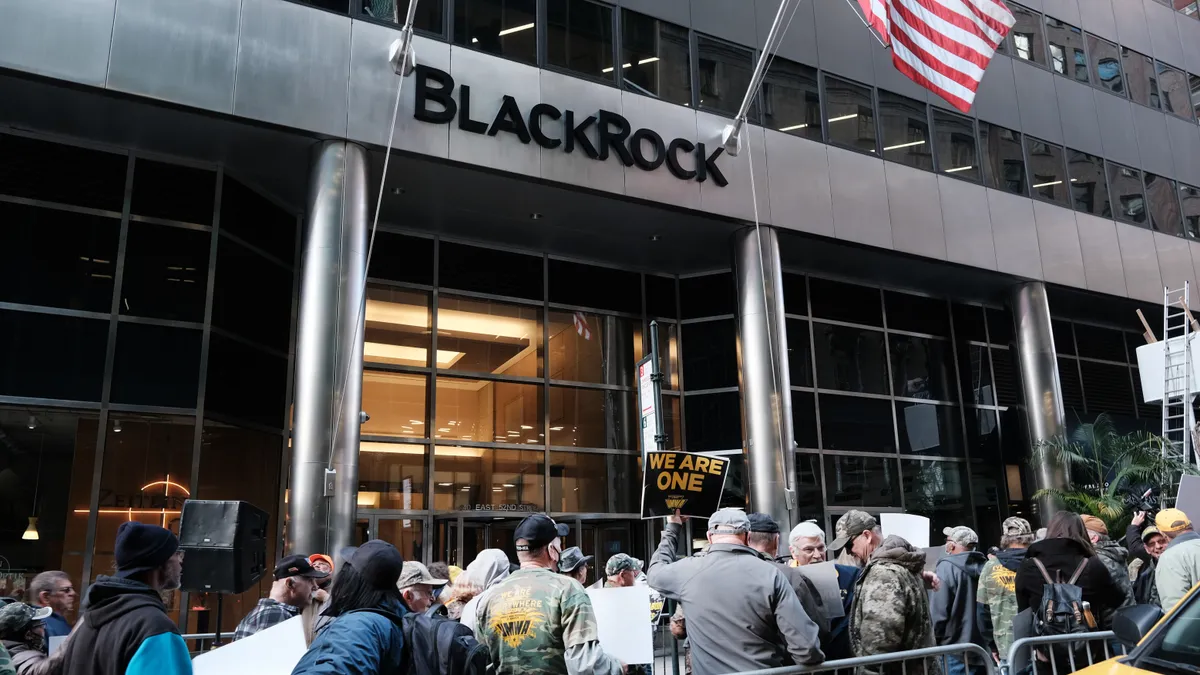Dive Brief:
- The Texas Permanent School Fund said it was pulling its $8.5 billion investment from BlackRock Tuesday, attributing the divestment to the asset manager’s alleged boycotting of fossil fuel and energy companies.
- The fund — which manages close to $53 billion in assets and distributes nearly $2.2 billion to Texas K-12 schools annually — said it was terminating two contracts for investment management services with BlackRock to comply with Senate Bill 13. SB13 is a 2021 Texas law that requires the Lone Star State to stop doing business with companies that take actions to “limit commercial relations” with fossil fuel companies.
- Separate from complying with the state law, Texas PSF said it has been divesting its assets managed by firms that “boycott energy companies” as part of its fiduciary duty to “maximize returns for Texas public schools.”
Dive Insight:
The decision to strip investments from BlackRock comes after the Texas Permanent School Fund Corporation — a “special-purpose” governmental corporation created in 2021 that oversees the managing and investing of assets in the fund — adopted a new asset allocation strategy last month. This strategy removes the “increasingly volatile emerging market debt and equities” while decreasing exposure to non-U.S. equities, which BlackRock was providing management services for, according to the corporation.
“Companies pushing anti-Texas policies and woke indoctrination have no place in Texas public education, whether in the classroom or as investments in Texas Permanent School Fund,” Tom Maynard, chair of the Texas PSF, said in a statement announcing the decision.
A BlackRock spokesperson told ESG Dive that the divestment initiated by the Texas State Board of Education Chair Aaron Kinsey was “unilateral and arbitrary.” The firm said the move “jeopardizes Texas schools and the families who have benefited from BlackRock’s consistent long-term outperformance for the Texas Permanent School Fund.”
“The decision ignores our $120 billion investment in Texas public energy companies and defies expert advice,” the spokesperson said. “As a fiduciary, politics should never outweigh performance, especially for taxpayers.”
The move marks the latest blow to BlackRock, which has ended up on divestment lists in several conservative-leaning states such as Texas and Florida. The nation’s largest asset manager has also been the target of legal scrutiny over its ESG stances: BlackRock was sued by the state of Tennessee in December for allegedly misleading consumers about the scope and effects of its ESG activity and released conflicting statements regarding ESG’s influence over its business decisions. The same month, the House Judiciary Committee subpoenaed BlackRock, State Street and two others for documents that would determine whether the firms’ climate-related efforts violated federal antitrust laws.
Such developments and intense criticism from both ends of the political spectrum over its stance on ESG issues have caused the firm to dilute its position on the matter, both in terms of corporate language used in reports and investment decisions. Last year, BlackRock reported supporting a smaller percentage of environmental and social proposals in 2023, with its outsized role attributing to a falling approval rate of ESG proposals.
Earlier this year, the Larry Fink-led firm said the proliferation of domestic and international environmental, social and governance regulations expose BlackRock to increased scrutiny and uncertainty in its annual 10-K filing with the Securities and Exchange Commission.
BlackRock also listed ESG under potential legal, regulatory and reputational risks, and said increasing focus from regulators, as well as officials, clients and other stakeholders on ESG could “adversely impact” the company’s reputation and business.











